As America's debate over toppling Saddam Hussein's regime intensifies, Russia is moving to center stage. This week Russia signed a $40 billion trade and economic cooperation treaty with Iraq while meeting Iranian leaders to discuss nuclear non-proliferation. Christopher Granville, a former British diplomat and now chief strategist for United Financial Group, a Russian investment bank, analyzes Russia's long-term interests and likely actions.
While no country seems able to trouble the Bush administration's military calculations concerning Iraq, Russia does combine serious interests in the region with marginally significant military capabilities. But Russia's real importance in any looming US-Iraq war lies not so much in its residual military power, as in the light its position sheds not only on the Iraqi problem but on that other member of the "axis of evil": Iran.
So far, the most striking feature of the Putin administration's handling of the US-Iraq situation has been its silence. If forced to state a view, Russian diplomats stick to a standard line about implementing UN Security Council resolutions and the need for Security Council endorsement of any new actions against Iraq. Unlike other leading West European countries, President Putin and his government prefer to keep their heads down, reflecting their wish to nurture Russia's new and still-fragile rapprochement with the US.
But this explanation does not fit Russian policy on Iran, where, despite US pressure, the Putin government is quite literally sticking to its guns by selling weapons and civil nuclear technology to Teheran. The nuclear issue came to the fore during the recent visit to Moscow by US Energy Secretary Spencer Abraham.
American arguments against Russian cooperation center on Iran's motives for developing nuclear power. Given the country's massive hydrocarbon reserves, the Iranian regime has no obvious need for such a program besides its suspected ambition to develop nuclear weapons. Transfer of atomic energy know-how from Russia is seen as a first step towards achieving that goal.
Russian officials reply that there can be no serious objection to such civil nuclear cooperation programs so long as the recipient country accepts the safeguards and inspection regime of the International Atomic Energy Agency (IAEA). This is the case with Iran. Russian officials like to point out that the US and other Western countries once planned similar cooperation program with countries, including North Korea, which do not accept the rigorous IAEA safeguards to which Iran has agreed.
Russia's government argues in a similar vein that its conventional arms sales to Iran concerns supplies of equipment that have no bearing on concerns about the proliferation of weapons of mass destruction. It challenges the US and others to prove the contrary. In response, the US has made a partial, but not fully convincing, case--at least publicly.
After talks with Mr Abraham, Russia indicated that implementation of nuclear projects in Iran beyond the existing one at Bushehr would be subject to a review of domestic political developments. But that seems more like a tactical move aimed at appeasing the US, rather than a reflection of genuine second thoughts on nuclear cooperation with Iran in principle.
All of this suggests that the Putin administration has other goals besides proving Russia's new-found friendship with the US. Deeper interests underlie Russia's attitude toward Iran and its tacit accommodation of US war plans against Iraq.
One need look no further than the country's external financial position. Russia inherited all of the Soviet Union's foreign financial claims and liabilities. It now spends up to $10 billion a year servicing Soviet-era debts. Soviet-era claims, on the other hand, are almost all beyond recovery.
Oil-rich Iraq's debts, with a face value amounting to many billions of dollars (deriving mainly from export credits for arms sales), are a rare exception. Russia's main interest in Iraq is to get these loans repaid, and then resume arms sales, while simultaneously becoming a major, perhaps the dominant, foreign player in Iraq's oil and gas sector.
Ever since the Gulf War, Russia has pursued these goals by promoting rehabilitation of Saddam's Iraq via the implementation of Security Council resolutions and the lifting of sanctions. That route now looks hopeless. So the US goal of regime change in Baghdad does not look too bad, even if it cannot be publicly supported.
For President Putin it makes sense to stay on the sidelines over Iraq, at least for now, and to be repaid later for his helpful silence in the form of US influence on the successor Iraqi regime concerning repayment of the country's Russian debts. If the US war in Iraq fails, the situation will hardly be worse than it is now from the narrow point of view of Russian interests, while the resulting mess will be a problem for the US and its traditional allies rather than for Russia.
The contrast between Russia's handling of Iraq and Iran underlines not only Mr Putin's famous pragmatism, but the sophistication and adroitness of his policy. This contrast also reflects the fundamental difference between Iran, an historical nation state, and the artificial creation that is Iraq.
Russia's long-term interests in Iran require permanent engagement. Iran's Islamic revolution will inevitably run its course and mutate into a new form of nationalism, to some extent mirroring Russia's own transition out of the Soviet system. With Iraq, the opposite is true, because not only the regime but the country itself might cease to exist, or at least be radically transformed, should Hussein fall. Putin's goal is to put Russia in a position to exploit such transformations.

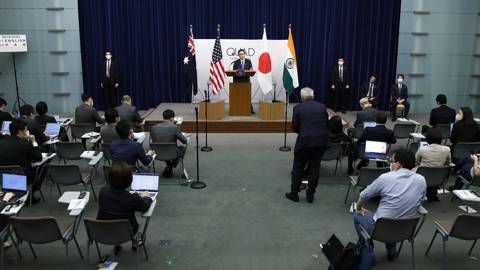
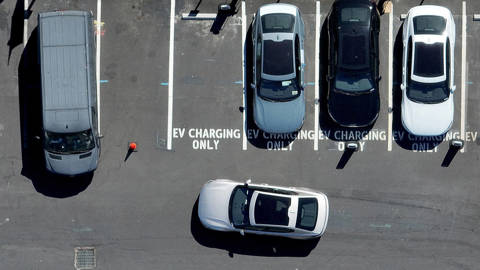
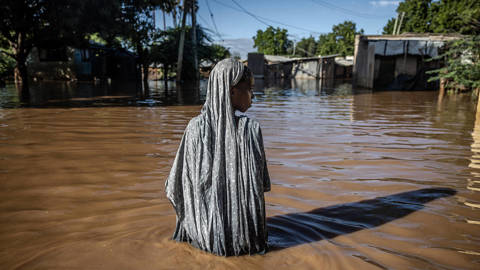


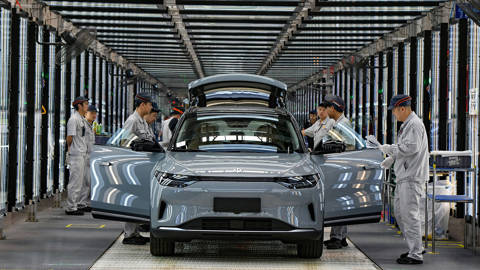
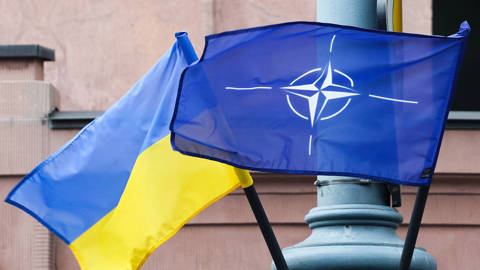


As America's debate over toppling Saddam Hussein's regime intensifies, Russia is moving to center stage. This week Russia signed a $40 billion trade and economic cooperation treaty with Iraq while meeting Iranian leaders to discuss nuclear non-proliferation. Christopher Granville, a former British diplomat and now chief strategist for United Financial Group, a Russian investment bank, analyzes Russia's long-term interests and likely actions.
While no country seems able to trouble the Bush administration's military calculations concerning Iraq, Russia does combine serious interests in the region with marginally significant military capabilities. But Russia's real importance in any looming US-Iraq war lies not so much in its residual military power, as in the light its position sheds not only on the Iraqi problem but on that other member of the "axis of evil": Iran.
So far, the most striking feature of the Putin administration's handling of the US-Iraq situation has been its silence. If forced to state a view, Russian diplomats stick to a standard line about implementing UN Security Council resolutions and the need for Security Council endorsement of any new actions against Iraq. Unlike other leading West European countries, President Putin and his government prefer to keep their heads down, reflecting their wish to nurture Russia's new and still-fragile rapprochement with the US.
But this explanation does not fit Russian policy on Iran, where, despite US pressure, the Putin government is quite literally sticking to its guns by selling weapons and civil nuclear technology to Teheran. The nuclear issue came to the fore during the recent visit to Moscow by US Energy Secretary Spencer Abraham.
American arguments against Russian cooperation center on Iran's motives for developing nuclear power. Given the country's massive hydrocarbon reserves, the Iranian regime has no obvious need for such a program besides its suspected ambition to develop nuclear weapons. Transfer of atomic energy know-how from Russia is seen as a first step towards achieving that goal.
Russian officials reply that there can be no serious objection to such civil nuclear cooperation programs so long as the recipient country accepts the safeguards and inspection regime of the International Atomic Energy Agency (IAEA). This is the case with Iran. Russian officials like to point out that the US and other Western countries once planned similar cooperation program with countries, including North Korea, which do not accept the rigorous IAEA safeguards to which Iran has agreed.
SPRING SALE: Save 40% on all new Digital or Digital Plus subscriptions
Subscribe now to gain greater access to Project Syndicate – including every commentary and our entire On Point suite of subscriber-exclusive content – starting at just $49.99.
Subscribe Now
Russia's government argues in a similar vein that its conventional arms sales to Iran concerns supplies of equipment that have no bearing on concerns about the proliferation of weapons of mass destruction. It challenges the US and others to prove the contrary. In response, the US has made a partial, but not fully convincing, case--at least publicly.
After talks with Mr Abraham, Russia indicated that implementation of nuclear projects in Iran beyond the existing one at Bushehr would be subject to a review of domestic political developments. But that seems more like a tactical move aimed at appeasing the US, rather than a reflection of genuine second thoughts on nuclear cooperation with Iran in principle.
All of this suggests that the Putin administration has other goals besides proving Russia's new-found friendship with the US. Deeper interests underlie Russia's attitude toward Iran and its tacit accommodation of US war plans against Iraq.
One need look no further than the country's external financial position. Russia inherited all of the Soviet Union's foreign financial claims and liabilities. It now spends up to $10 billion a year servicing Soviet-era debts. Soviet-era claims, on the other hand, are almost all beyond recovery.
Oil-rich Iraq's debts, with a face value amounting to many billions of dollars (deriving mainly from export credits for arms sales), are a rare exception. Russia's main interest in Iraq is to get these loans repaid, and then resume arms sales, while simultaneously becoming a major, perhaps the dominant, foreign player in Iraq's oil and gas sector.
Ever since the Gulf War, Russia has pursued these goals by promoting rehabilitation of Saddam's Iraq via the implementation of Security Council resolutions and the lifting of sanctions. That route now looks hopeless. So the US goal of regime change in Baghdad does not look too bad, even if it cannot be publicly supported.
For President Putin it makes sense to stay on the sidelines over Iraq, at least for now, and to be repaid later for his helpful silence in the form of US influence on the successor Iraqi regime concerning repayment of the country's Russian debts. If the US war in Iraq fails, the situation will hardly be worse than it is now from the narrow point of view of Russian interests, while the resulting mess will be a problem for the US and its traditional allies rather than for Russia.
The contrast between Russia's handling of Iraq and Iran underlines not only Mr Putin's famous pragmatism, but the sophistication and adroitness of his policy. This contrast also reflects the fundamental difference between Iran, an historical nation state, and the artificial creation that is Iraq.
Russia's long-term interests in Iran require permanent engagement. Iran's Islamic revolution will inevitably run its course and mutate into a new form of nationalism, to some extent mirroring Russia's own transition out of the Soviet system. With Iraq, the opposite is true, because not only the regime but the country itself might cease to exist, or at least be radically transformed, should Hussein fall. Putin's goal is to put Russia in a position to exploit such transformations.